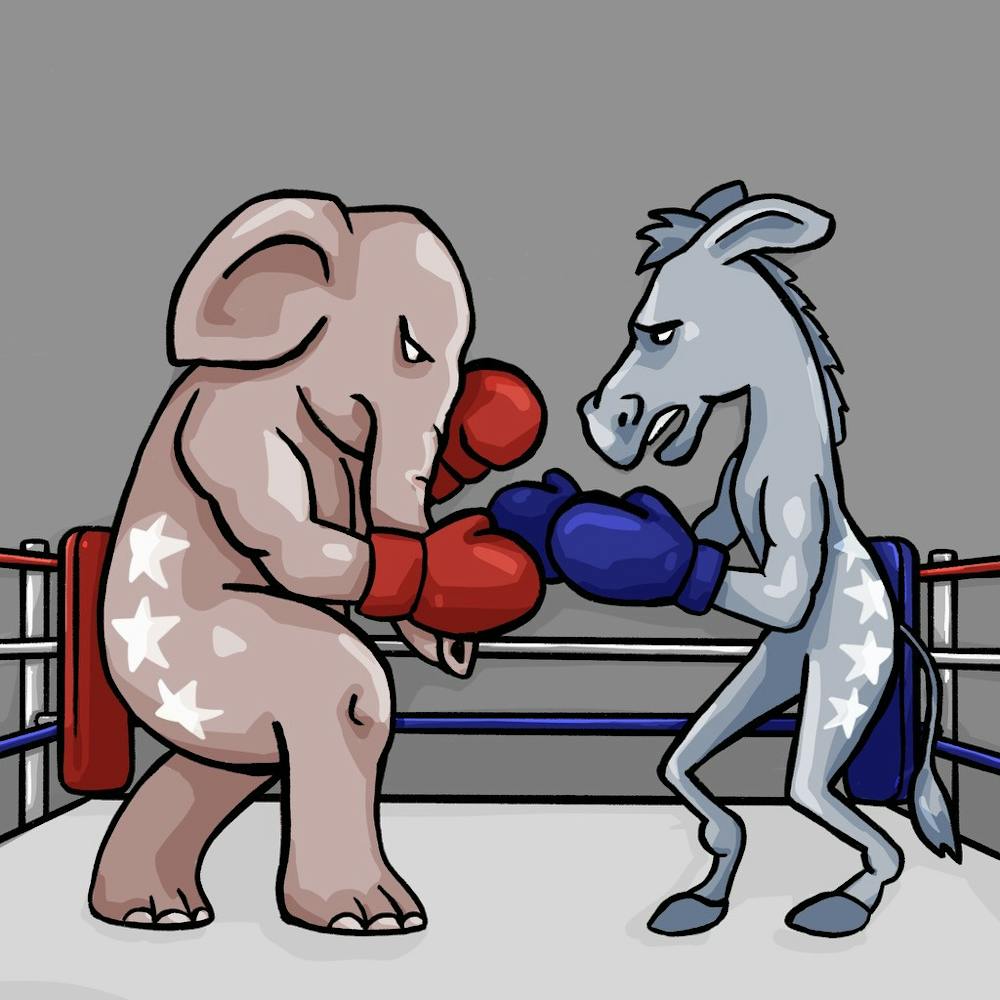When you think of the First Amendment, what comes to mind? Freedom of religion? Freedom of speech? What about the freedom to protest?
It’s not controversial to say that the right to protest and make our voices heard is one of our most fundamental rights. However, our use of protesting has become another factor driving the political division in our country.
In 2016 and 2020, we had some of the most polarizing elections in the 21st century, which were also the first elections in U.S. history to focus its attention on a new form of media to campaign. In less than a decade, social media has become a crucial asset in campaigns and can sway entire elections.
On one hand, it’s great that voters and elected officials can have a higher level of connection with the public. But a private company determining what information you see can be dangerous. Social media companies use a wide variety of algorithms, all based on a set of machine learning called ranking signals. Ranking signals control all information you take in, from deciding what content is made visible to filtering content based on what a user is most likely to interact with.
This unfortunately means that if you use social media for politics or news, you will always get a skewed view of any situation to fit your political opinion. This causes millions of people to become swallowed by that algorithm and put in their own echo chamber, with no interaction with opposing views. This creates weak-minded individuals who are incapable of interacting outside of that bubble.
People will continue eating up this new form of entertainment until they get bored of it – hence why we see politics continuing to become more radical on each side. Basic centrist policies are not profitable because they are uninteresting.
This is why a Democrat echo chamber can continue to claim Republicans want to take away a woman’s right to vote and Republicans say that Democrats will make your kids transgender. Both are untrue, but fear-mongering plays on people’s emotions and makes them more likely to interact with the content, generating more engagement and money for these social media companies.
So, what does any of this have to do with our fundamental right to protest? Because these social media companies continue to push information meant to outrage the reader, people are pushed into echo chambers and start assigning labels to themselves.
Once you have a group of strongly opinionated individuals who can never be swayed because of the amount of targeted and misleading information they’ve consumed, you get a group where the possibility to debate and openly discuss differences has been destroyed. This means when we have two opposing political/civic organizations on campus protesting we have two groups that try to completely dehumanize each other.
I’ve had extensive conversations with Miami University administrators, faculty and students about their experiences with student protests and efforts on campus trying to push bipartisanship. Miami has done an amazing job focusing on this issue by creating “Breaking Bread” meetings where Miami’s Office of Student Life gets two opposing sides together to talk with each other.
This by itself is a great start, actively pushing these people to interact; however, the problem is that these meetings rely on those labels we put on each other. So these are no longer meetings between two groups with diverse backgrounds and experiences, but a meeting between Republicans and Democrats.
During my first two years in student government, I was very aware of the radically different views of people I would interact with. I made a conscious decision not to mention or make important my personal beliefs, knowing that would shut down any opportunity to pursue bipartisanship. Many times I was in committee meetings being told how much someone hates Catholics or wishes all Republicans would simply die. Every time I’d bite my tongue knowing these people had no idea who they were talking to and, furthermore, had no clue they were actively working across the aisle by working with me.
Enjoy what you're reading?
Signup for our newsletter
It’s our right to protest and speak out about what we believe in. But isn’t it wrong to take it to such a level where we vilify and dehumanize each other when we’re all just college students surrounded by cornfields? A person’s character is not defined by their politics, and neither is their politics by their character.
If you are going to hold the door open for a stranger, why should that change once you put a label on them?
Spencer Mandzak is a senior public administration major with a history minor. He is State Chairman for the Ohio College Republican Federation and Program Director for College Republicans of America.




